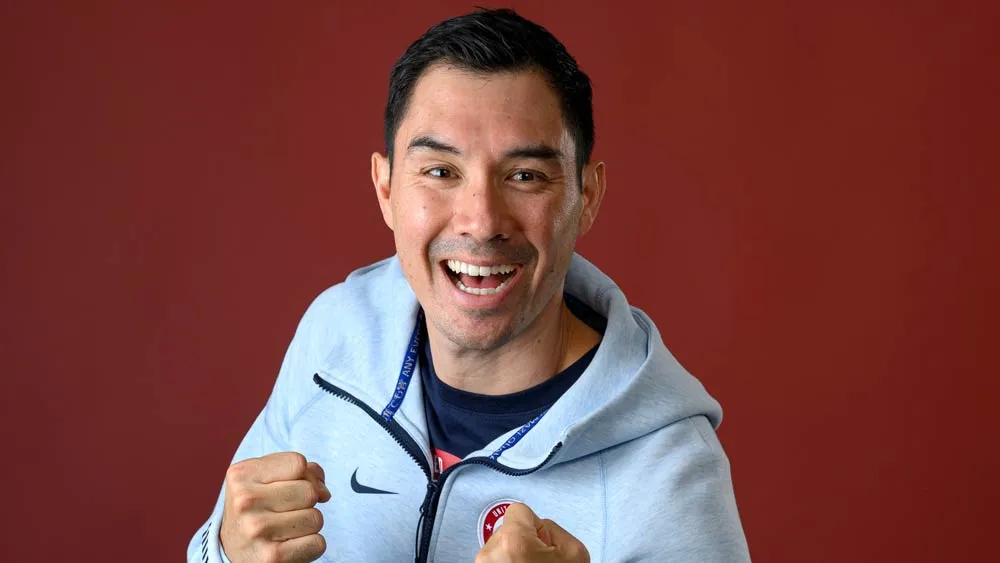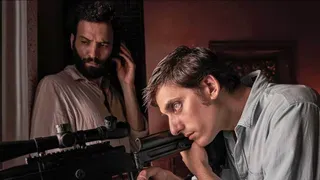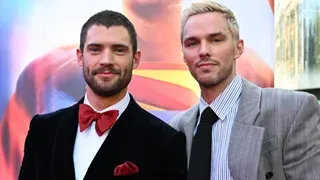September 28, 2021
Review: 'Roadrunner: A Film About Anthony Bourdain' a Moving Tribute to the Celebrity Chef
Karin McKie READ TIME: 3 MIN.
Everyone's mad at Anthony Bourdain for taking his own life, and rightfully so. We desperately need his world view now, to know that we're bound into a common humanity while gathered around the dining table. The way to world peace is through our collective appetites and our kindred cravings for sustenance.
We're angry that Tony is gone because we loved him so much, as is clear in director/producer Morgan Neville's comprehensive documentary "Roadrunner: A Film About Anthony Bourdain," opening in theaters on July 16. The Oscar-winning filmmaker of "Won't You Be My Neighbor" and "20 Feet From Stardom" employs oodles of footage from Bourdain's 26 turns and 662,000 miles around the globe, sharing meals, conversations, and perspectives. A chef friend says that Bourdain's various shows weren't actually about food, but about Tony becoming a better person.
Bourdain's rise started with his first memoir, "Kitchen Confidential," which catapulted the chain-smoking, sometimes heroin-addicted, Les Halles chef onto bestseller lists and talk shows, then across the planet for his first TV show. The "big nerd" started as a "dead-end dishwasher," and had always lived paycheck to paycheck, so was uneasy about his new celebrity. He had also never traveled outside the U.S., so his producers, spouses Chris Collins and Lydia Tenaglia, chronicle their rocky start in Japan via interviews in this film. Bourdain found his stride in Vietnam, something that is partially attributed to his love of the movie "Apocalypse Now" and the book that film derived from, "Heart of Darkness."
For his TV persona, Bourdain wanted to sound like a writer, not a host. He left cooking and his first wife, then set out on the road with his producers and crew, who are also interviewed in the doc. His collaborators said he was a control freak, thinking that the greatest sin was mediocrity, which they learned from spending 250 days a year traveling with him.
An interviewee notes that Bourdain's addictions jumped from drugs to making travel television, and to being a traveler, not a tourist. He started as a voyeur, then became a storyteller. About acclaimed chef Eric Ripert, a close friend, Bourdain says, "his food is like driving a Rolls Royce almost naked, with mink underpants." Tony's rhetoric seemed to come easily, but his life was hard. His later romance started crumbling because he was obsessive, and he became agoraphobic.
"He's a fucking runner," one says. "But he's not going to outsmart pain."
And yet he wasn't Edgar Allen Poe, another notes. "He had a lot of light around him."
Neville's heartbreaking, bittersweet panegyric perhaps becomes the suicide note Bourdain never left. One of the outtakes shows Tony musing about his own demise: "I don't want anybody to see my body. I don't want a party. Put me in a wood chipper." Those interviewed continue to be devastated since Bourdain's death on June 8, 2018. The coroner determined that he had been clean and sober when he died. Ripert found the body.
A friend says, "He let us down. It was cruel."
But a poem left at the street shrine outside of Les Halles offers a counterpoint: "Icarus didn't fall. He was coming to the end of his triumph."
"Roadrunner: A Film About Anthony Bourdain" is available digitally today and on DVD October 12
Karin McKie is a writer, educator and activist at KarinMcKie.com







